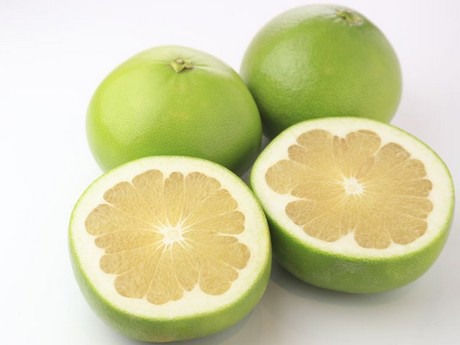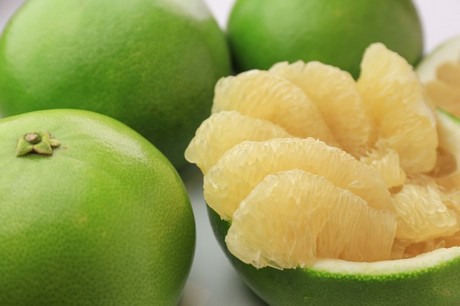One grower is looking to introduce a popular exporting grapefruit into the domestic market.
“We grow a melogold grapefruit which is a hybrid,” says James Wilson of Sequoia Enterprises, Inc. in Exeter, Ca. “It’s a big piece of fruit that normally goes to Japan or Korea and it hasn’t taken off domestically yet.”
The melogold is a bigger and sweeter piece of fruit—Wilson says it’s smaller than a pomelo and sweeter and juicier than a pomelo. And since it’s grown in California’s Central Valley and the season runs from the end of October until the first week in January, Wilson notes that it’s the only grapefruit available in the area at that time.

Limited competition
With some 98 percent of its grapefruit heading traditionally to Japan and Korea, melogold's prime competitor is the Israeli Sweetie grapefruit, which is a hybrid of a pomelo and a grapefruit.
Wilson believes that supplies of the melogold will likely be the same as last season. “The grapefruit is also sizing as per usual but I think we’ll have a bit of a problem with scarring,” he says. “The fruit gets so big that they’re susceptible to a lot of wind and bug damage—their size exacerbates the issue.”

Domestic possibilities?
While demand for the fruit has been strong for the last 10 years in the Japanese and Korean export markets, Wilson notes that last year’s demand was softer so he believes consumption may be down this year. “I do feel this year may be different so we may have to establish a domestic market for them,” he says. “I’m not sure why it hasn’t caught on domestically yet—it may be a price or shelf space issue.”
As for pricing, Wilson anticipates pricing to be down somewhat compared to last year to spur the export markets along. “Our pricing is in line with grapefruit but our sizing is a bit bigger and we’ll peak on an 18 and a 23 instead of a domestic which peaks on a 36 or 40,” he says. “So the per piece price is a bit higher than on a normal grapefruit I’d say.”
For more information:
James Wilson
Sequoia Enterprises, Inc.
Tel: +1 (559) 592 9455
jwilson@sequoiaorange.com
http://www.sequoiaorange.com/
